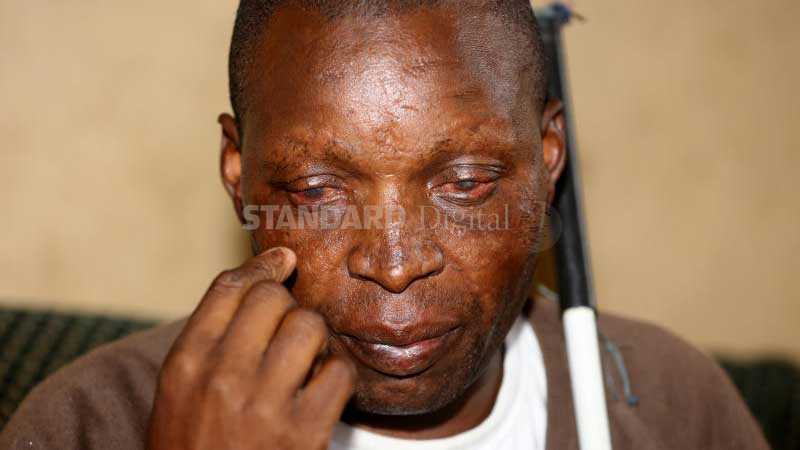×
The Standard e-Paper
Home To Bold Columnists

A cleaner has won a 14-year case in which he sued an aviation company for negligence after he was blinded by chemicals.
Isaac Njuguna sued Farmland Aviation in 2007 for compensation after the chemicals also caused him a rare skin condition called Stephen Johnson Syndrome, which saw his dermis and epidermis separated.